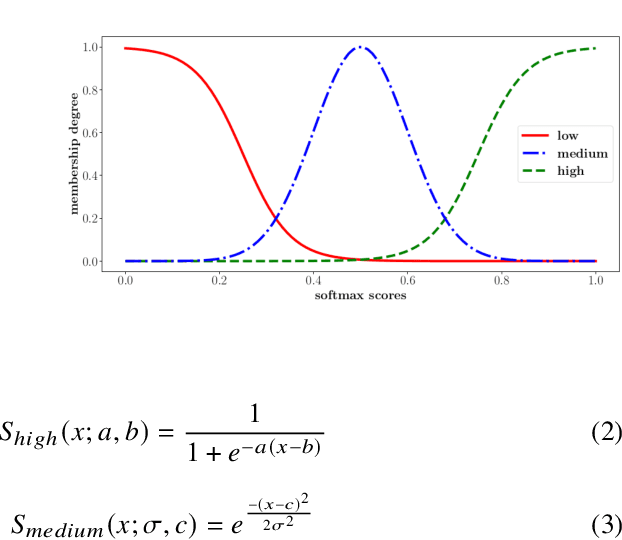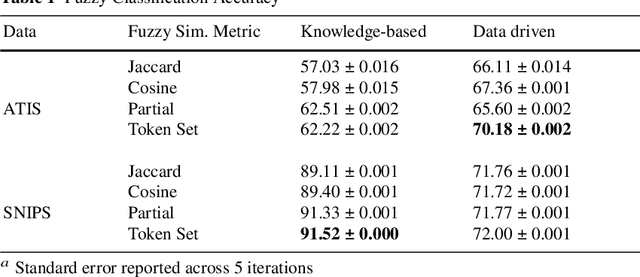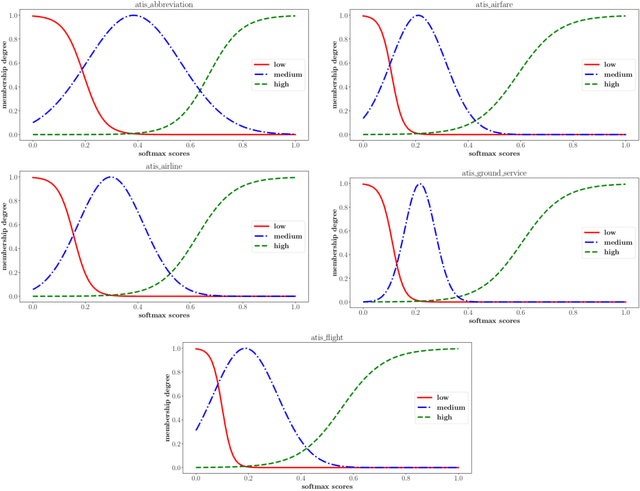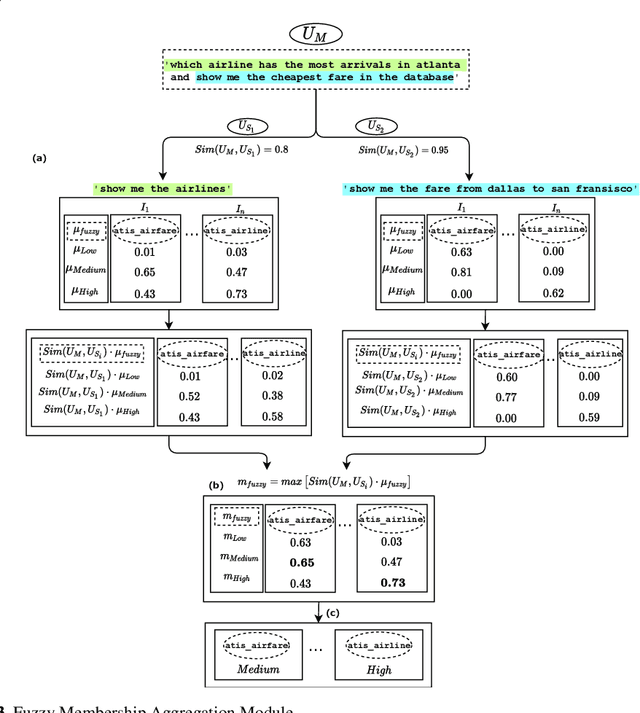Fuzzy Classification of Multi-intent Utterances
Paper and Code
Apr 22, 2021



Current intent classification approaches assign binary intent class memberships to natural language utterances while disregarding the inherent vagueness in language and the corresponding vagueness in intent class boundaries. In this work, we propose a scheme to address the ambiguity in single-intent as well as multi-intent natural language utterances by creating degree memberships over fuzzified intent classes. To our knowledge, this is the first work to address and quantify the impact of the fuzzy nature of natural language utterances over intent category memberships. Additionally, our approach overcomes the sparsity of multi-intent utterance data to train classification models by using a small database of single intent utterances to generate class memberships over multi-intent utterances. We evaluate our approach over two task-oriented dialog datasets, across different fuzzy membership generation techniques and approximate string similarity measures. Our results reveal the impact of lexical overlap between utterances of different intents, and the underlying data distributions, on the fuzzification of intent memberships. Moreover, we evaluate the accuracy of our approach by comparing the defuzzified memberships to their binary counterparts, across different combinations of membership functions and string similarity measures.
 Add to Chrome
Add to Chrome Add to Firefox
Add to Firefox Add to Edge
Add to Edge